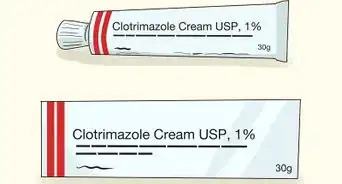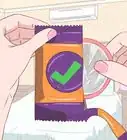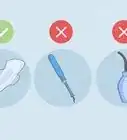This article was co-authored by Luba Lee, FNP-BC, MS. Luba Lee, FNP-BC is a Board-Certified Family Nurse Practitioner (FNP) and educator in Tennessee with over a decade of clinical experience. Luba has certifications in Pediatric Advanced Life Support (PALS), Emergency Medicine, Advanced Cardiac Life Support (ACLS), Team Building, and Critical Care Nursing. She received her Master of Science in Nursing (MSN) from the University of Tennessee in 2006.
This article has been viewed 52,910 times.
If you're hoping to use a feminine wash, or intimate wash, to improve your hygiene, there are some simple steps you can take to get the best results. Picking out a good feminine wash is the first step to using it safely. Avoid soaps with fragrances or chemicals in them, and instead opt for simple, gentle soaps. Create a soapy lather while you're in the shower to clean the vulva (the outer part of your genitals), groin, and anal area, splashing water around the area to rinse it thoroughly once you're finished. Never put soaps or sprays inside your vagina, since it is self-cleaning, and only use feminine washes with the simplest ingredients on the outer sensitive areas.
Steps
Safe Feminine Wash Ingredients
-
1Pick a gentle, natural soap. The inside part of your genitals, or the vagina, is self-cleaning—which means you don’t need to wash it. However, it’s a good idea to clean the outer parts, including the folds of the labia (the “lips” that surround your vagina) and the rest of the pubic area. To avoid irritation, choose the simplest soap possible. Look for white varieties that have the fewest ingredients in them and that don’t contain harsh chemicals.[1]
- Soaps with lots of dyes, perfumes, or other harsh ingredients can irritate your vulva (the outer part of your genitals) or cause allergic reactions and itchiness.
- Unscented glycerin or Castile soap is a good option.
- Don’t use soaps, douches, or feminine washes to clean the inside of your vagina.
-
2Avoid perfumed soft soaps or other liquids to prevent irritation. Fancy soaps with fragrances aren’t healthy to use on your body’s most sensitive parts and can cause itchiness or redness. Read the bottle of soap you’re thinking about picking carefully to see if it contains heavy fragrances or other chemicals that could irritate your body.[2]
- Steer clear of antiseptic feminine washes as well. These can disrupt the healthy bacteria that your body needs.
-
3Look out for products with misleading labels. Many feminine washes will have claims on the bottles saying that they help your body maintain healthy pH levels or will keep your vagina super clean. However, your vagina is self-cleaning and maintains its own pH level perfectly, so it doesn’t need extra soaps to help it do this.[3]
- Products with these kinds of claims on them will likely have harmful chemicals or fragrances in them, making it important to check the ingredients list first.
-
4See a doctor if you’re experiencing lasting symptoms. A feminine wash isn’t going to fix itchiness, redness, or worse symptoms that you’ve had for a while, and can possibly make them worse. Visit your doctor if you’re worried about your feminine health so they can give you directions for how to get better.[4]
- If you notice a change in odor, schedule a checkup. This could be because of pregnancy, your menstrual cycle, or a change in diet, but it’s best to check with your healthcare provider to make sure.
Good Feminine Hygiene Practices
-
1Use a small amount of mild soap with warm water. It’s easiest to use feminine wash while you’re in the shower. Use a dime-sized amount of soap—since you’re washing such a small area, you barely need any soap at all.[5]
- Avoid using water that’s too hot.
- Pick a basic, unscented soap.
-
2Use a washcloth or your hand to clean the area with soapy water. Create a lather with the soap and warm water either with your hands or using a washcloth. Splash the soapy water around your vulva, or use the washcloth to gently pat the area clean.[6]
- Avoid using the washcloth to aggressively rub the area or you might cause irritation.
-
3Avoid putting soap or sprays in your vagina. Your vagina is self-cleaning, meaning it doesn’t need to be cleansed with any products. Putting soaps or sprays into your body to wash your vagina can actually mess up its natural pH balance and get rid of important healthy bacteria.[7]
- When you get rid of good bacteria, unhealthy bacteria or other organisms, like yeast, can grow in their place and cause infections.
- While douching and other internal cleansers are heavily marketed, avoid using them to keep your body safe and healthy.
-
4Rinse yourself with water thoroughly to get rid of all of the soap. Splash clean water around the area several times to ensure all of the soap is rinsed off of your body. Continue using water that’s not too hot to avoid any irritation.[8]
-
5Pat yourself dry with a soft towel. Use a clean towel to gently pat yourself dry after getting out of the shower. Avoid rubbing the area to prevent irritation or redness.[9]
Warnings
- Be aware that using feminine washes containing fragrances or chemicals may increase your risk of infections.⧼thumbs_response⧽
- Never use washes or sprays in your vagina unless your doctor tells you to. Over-the-counter washes can cause an imbalance in the healthy bacteria in your vagina.[10]⧼thumbs_response⧽
- Keep in mind that your vagina is self-cleansing, so there is no need to douche or wash inside of it. However, you should wash the outer part of your genitals (the labial folds and inner thigh area) twice a day with mild soap and water to stay clean and fresh.⧼thumbs_response⧽
References
- ↑ https://thesexpert.princeton.edu/2018/04/are-feminine-hygiene-washes-safe-to-use/
- ↑ https://thesexpert.princeton.edu/2018/04/are-feminine-hygiene-washes-safe-to-use/
- ↑ https://www.theguardian.com/society/2018/sep/04/the-vagina-is-self-cleaning-so-why-does-the-feminine-hygiene-industry-exist
- ↑ https://thesexpert.princeton.edu/2018/04/are-feminine-hygiene-washes-safe-to-use/
- ↑ https://youngwomenshealth.org/2017/04/19/vulvar-and-vaginal-care-and-cleaning/#
- ↑ https://youngwomenshealth.org/2017/04/19/vulvar-and-vaginal-care-and-cleaning/#
- ↑ https://www.womenshealth.gov/a-z-topics/douching
- ↑ https://youngwomenshealth.org/2017/04/19/vulvar-and-vaginal-care-and-cleaning/#
- ↑ https://www.theguardian.com/society/2018/sep/04/the-vagina-is-self-cleaning-so-why-does-the-feminine-hygiene-industry-exist
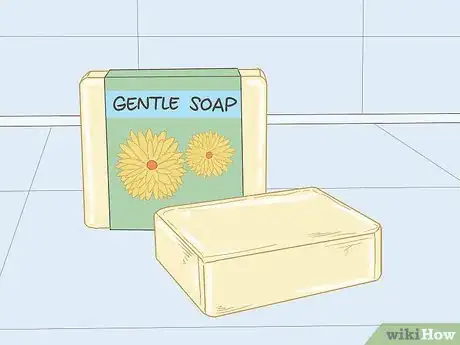
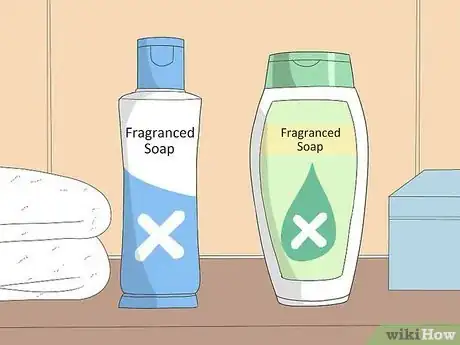
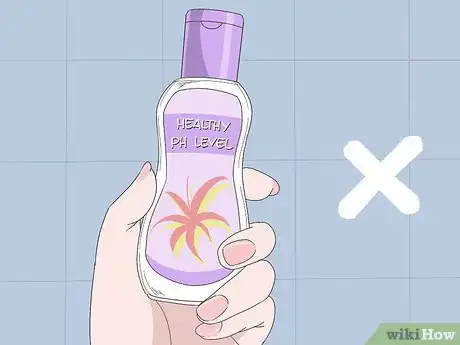

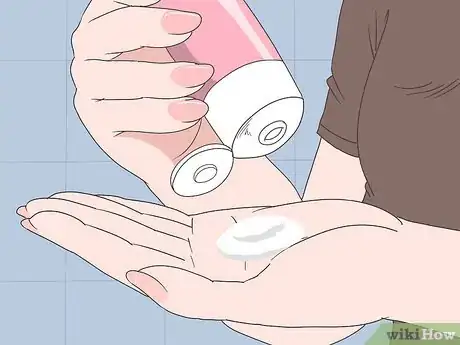
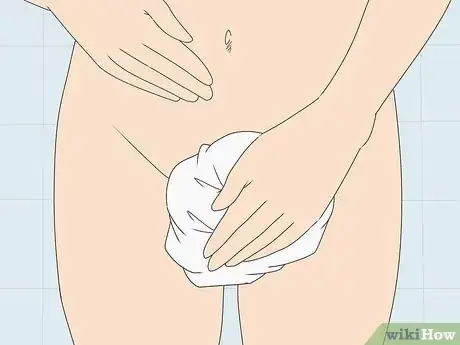
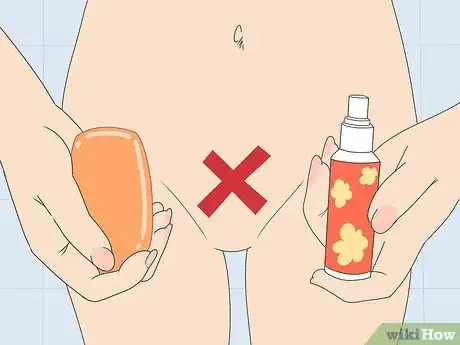
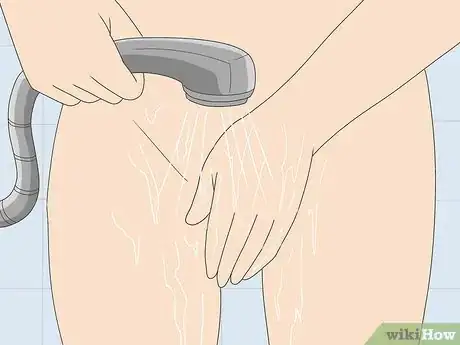
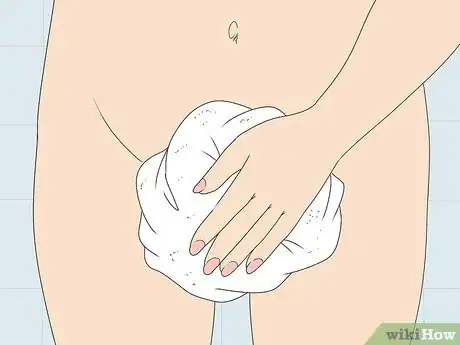

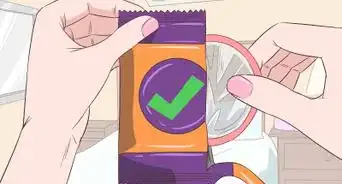
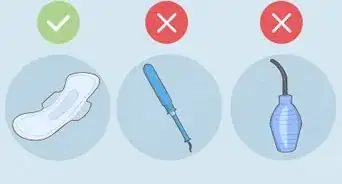



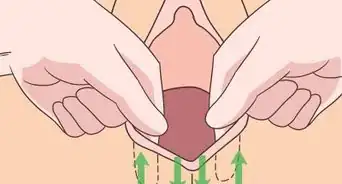


-Step-10-Version-2.webp)



